2021 Ferrari Roma: First Drive Review
With a twin-turbocharged V8 roaring with 612 horses, the gorgeous grand tourer hits 60 mph in three-seconds flat.
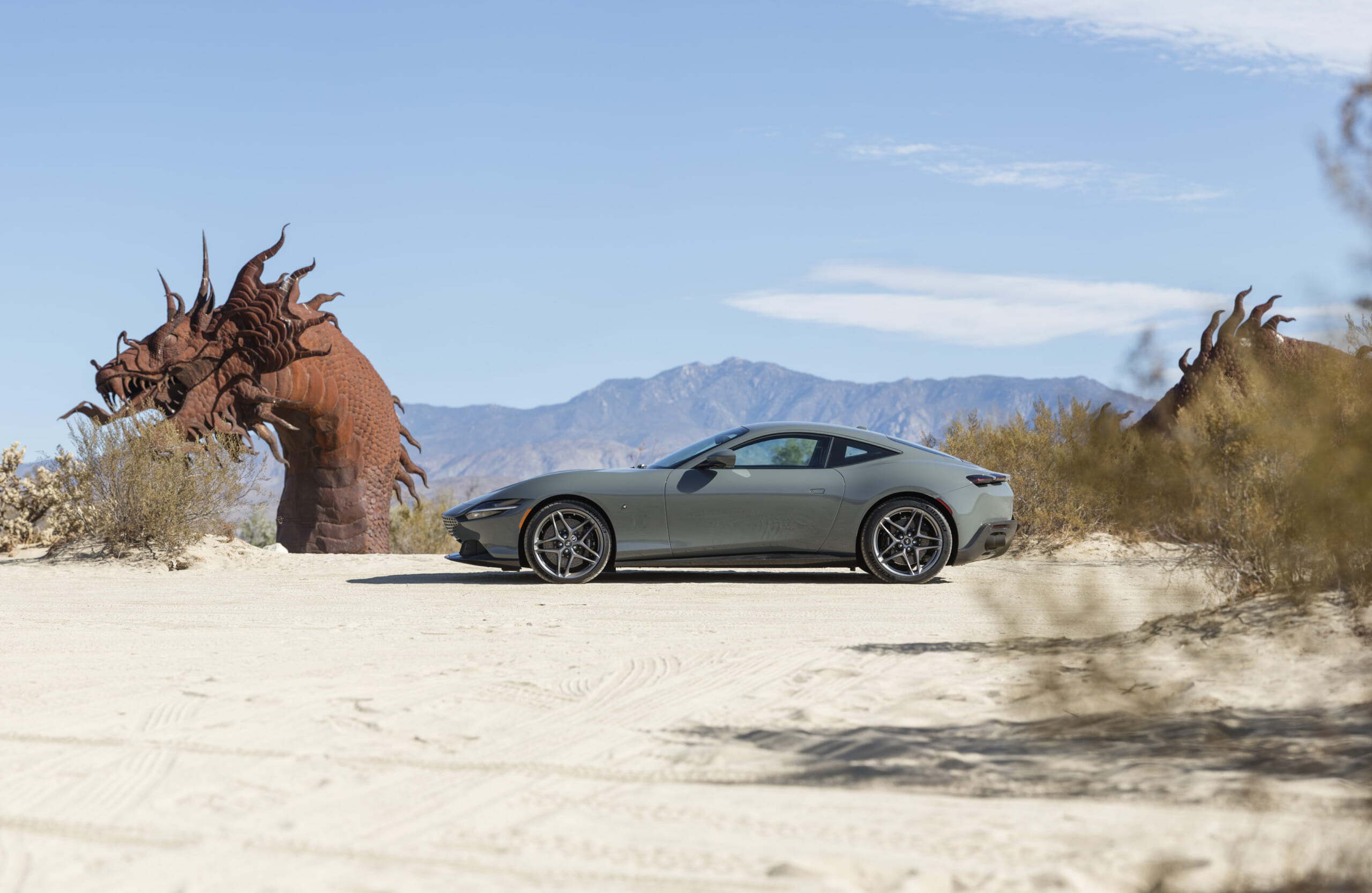
It’s sunrise in the desert somewhere near the Mexican border. The empty roads are black ribbons of asphalt gently bending and rippling into the horizon. There’s not another person or vehicle in sight and the roar of the quad exhausts shattering the morning silence indicates only one thing: a Ferrari is on the loose.
As I take the car into the lower triple digits, using the paddle shifters in Sport Mode to cycle through its eight gears, I notice the RPMs are only 2,000, which gives me a smile as big as the Cheshire Cat because redline doesn’t begin until 8,000. There’s power to spare on this gorgeous Italian beast, and then some.
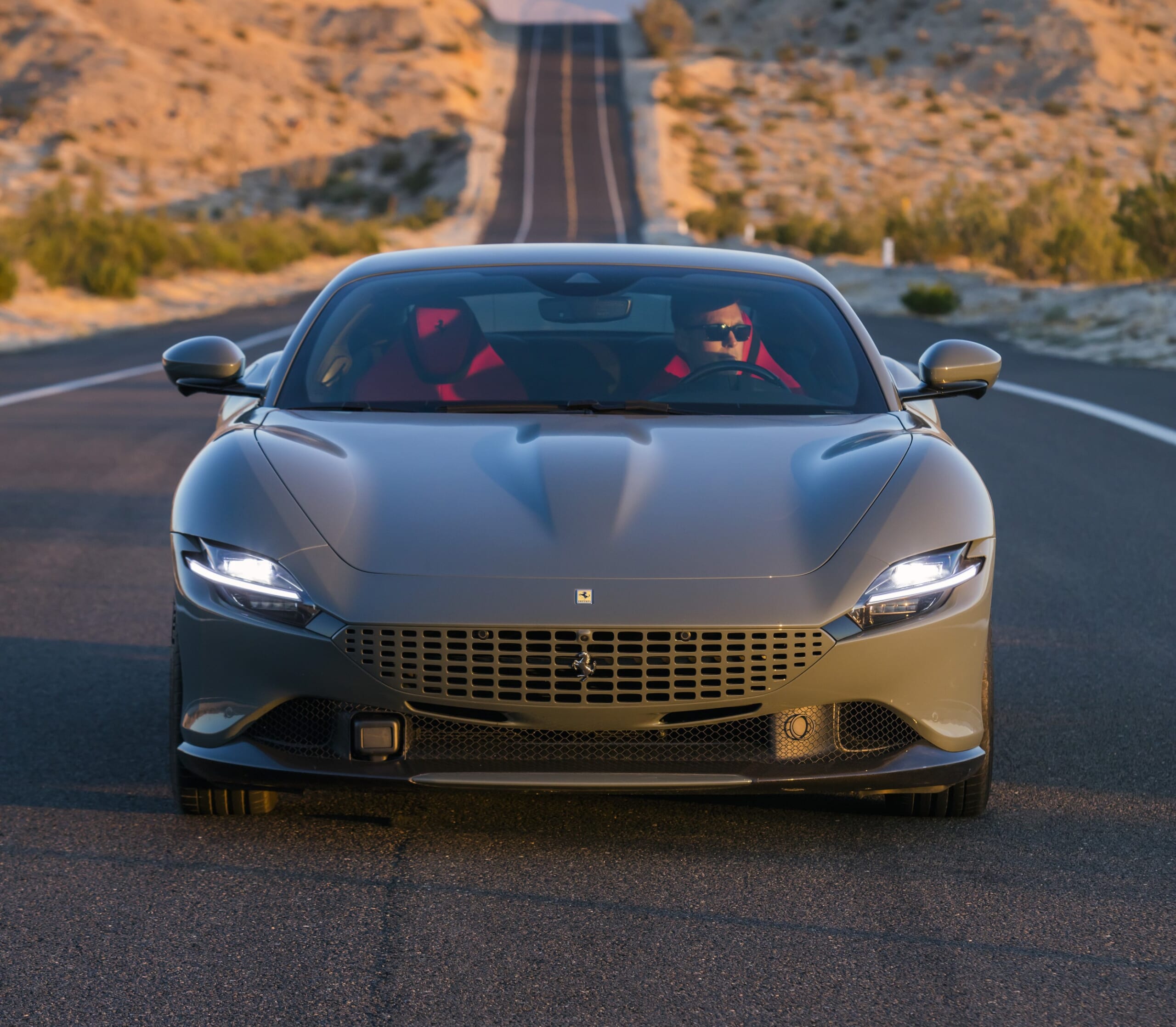
This is no ordinary Ferrari, if that word is even acceptable. This is the 2021 Ferrari Roma super GT – the newest stallion in Maranello’s stables. Powered by a 4.0-liter, twin-turbocharged V8 packed with 612 horses that can reach 60 mph in three seconds, the new Roma, no matter how graceful its appearance, has the soul of a cage fighter.
First, let’s address the elephant in the room right away. Since the Roma’s unveiling, there’s been a steady stream of comments about it essentially being a Ferrari-styled Aston Martin DB11. While I acknowledge the similarity in design and styling cues, I will not wade into that discussion. Why? Because it doesn’t matter.
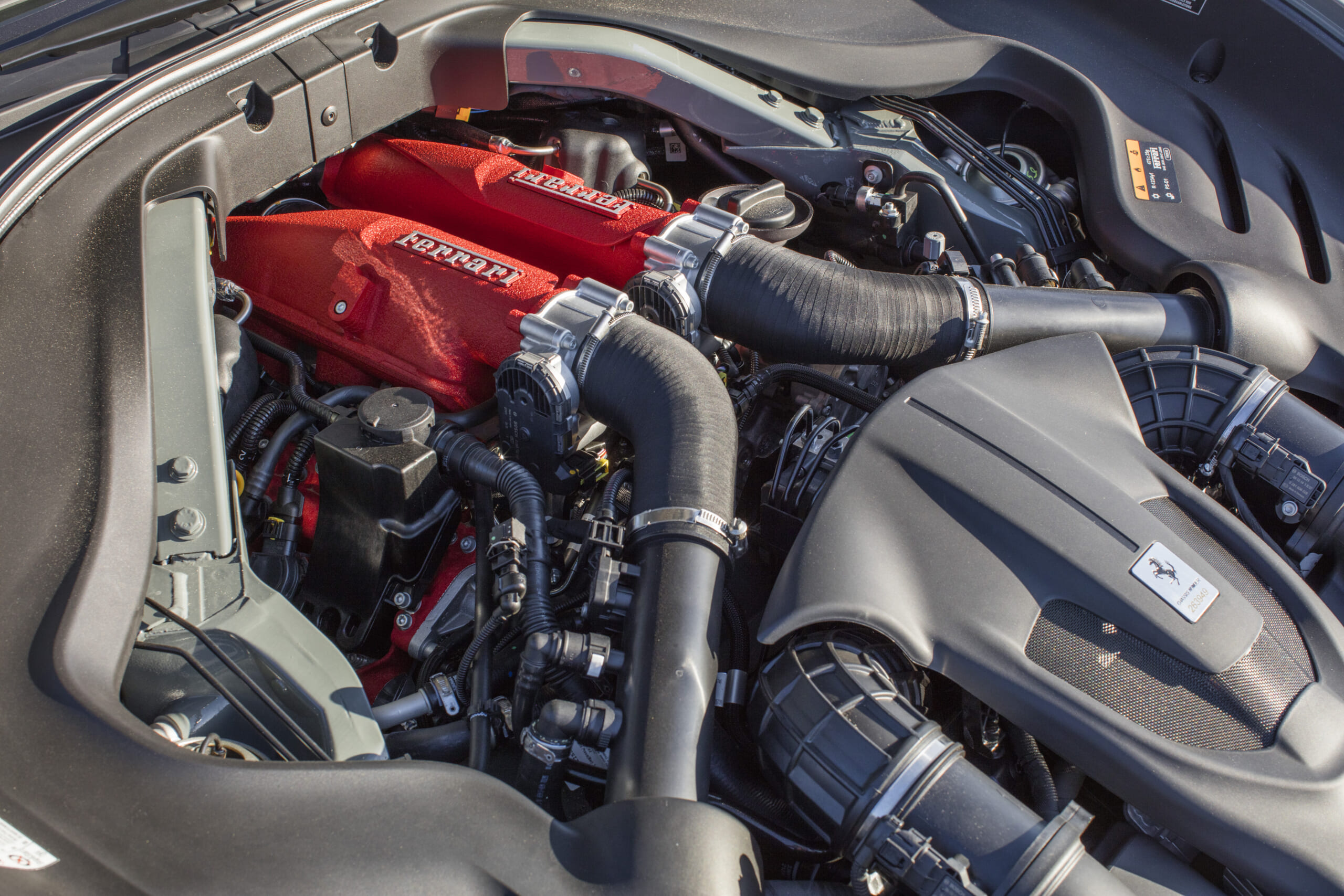
Instead, I will boldly make the statement that this is the most beautiful Ferrari built in decades.
If that means inspiration was drawn from Aston Martin or Pininfarina or Zagato or anywhere else, then I say bravo. The end result is unabashedly Ferrari, draw-dropping in its beauty.
More likely, inspiration for the Roma came from Ferrari’s extensive design archives. I would think an amalgamation of elements from the 250 Lusso, 250 GTO, 612 Scaglietti and even the 812 Superfast are the most obvious.
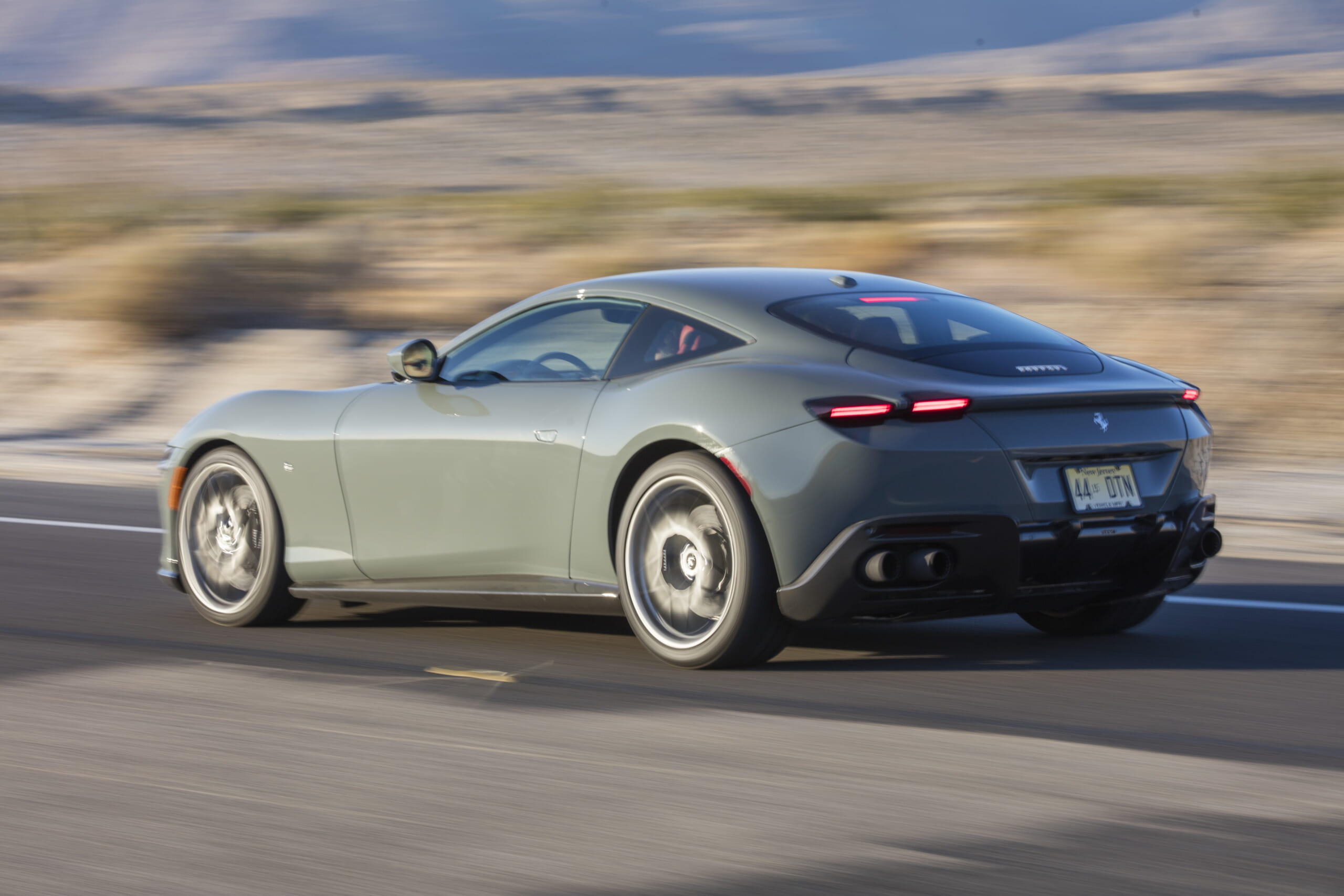
What the Roma represents is a return to the elegance of the 1960s grand tourers. The original purpose of the GT, whose golden age was in the mid-20th century, was a race car with the trappings of comfort. It was meant to embody elegance, luxury, power and performance in the most balanced way possible.
Ferrari’s design team, led by virtuoso Flavio Manzoni, has won so many Red Dot Awards that I’ve stopped counting. In less than a decade, they’ve been awarded close to 20 of these prestigious design distinctions for models such as the genre-bending La Ferrari and FXX-K.
So it’s refreshing to see a team that’s created the most futuristic and celebrated modern supercars – or terrestrial spaceships, as I call them – has the confidence to create the Roma.
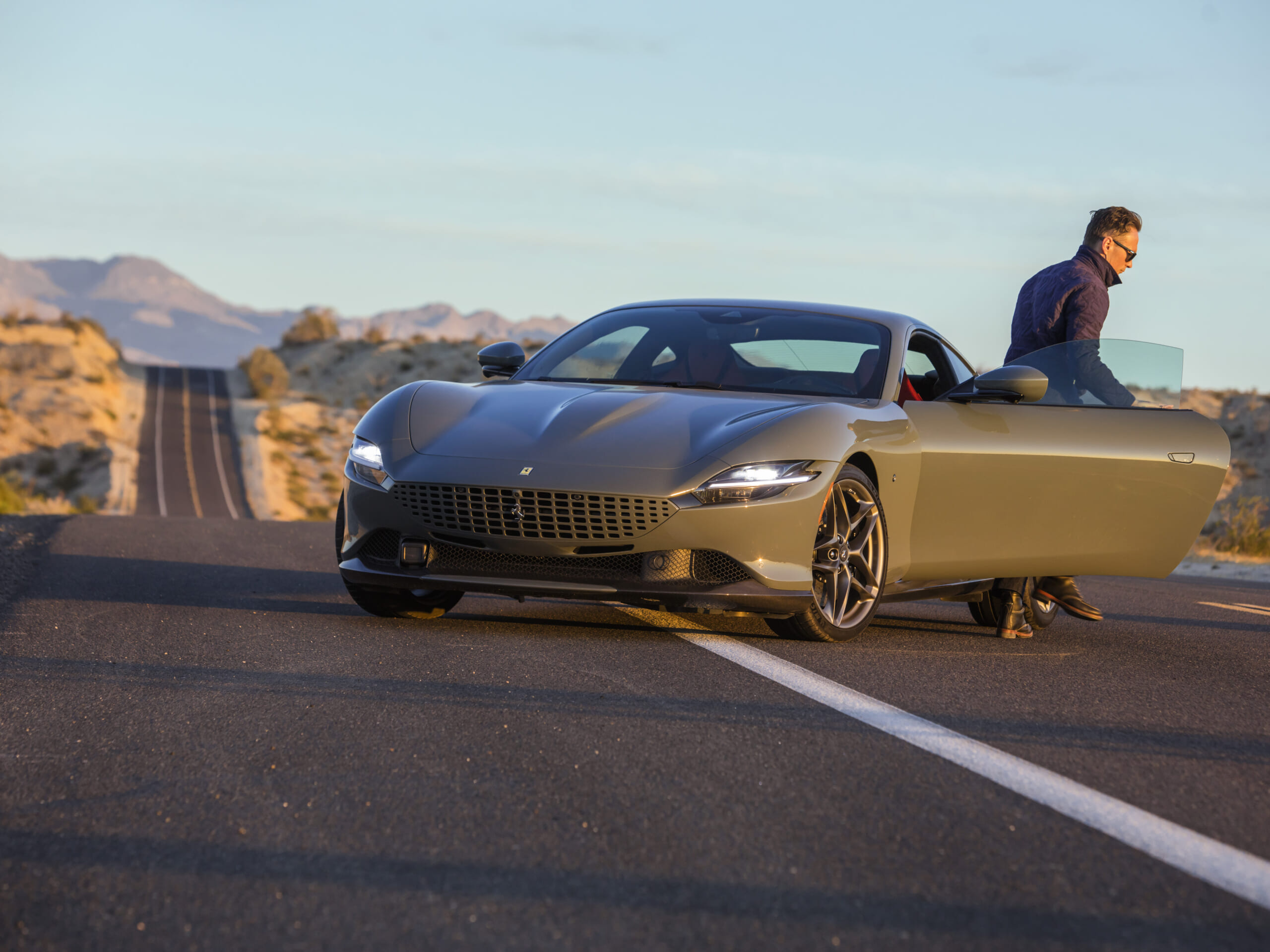
There is nothing brutal or in-your-face about the Roma’s design. The lines are smooth and refined but nonetheless powerfully evocative. Even the nose, which looks like it was borrowed from a mako shark, indicates reserved aggression ready to be unleashed if necessary, but remains incredibly harmonious to the overall sophistication.
To me, this is the essence of Ferrari.
Sure, all founder Enzo ever wanted to do was build pure race cars and beat everyone in the world. But to fund his racing ambitions, he needed to sell street cars. And when he did, he did not compromise, he stayed true to his purpose and made sure every “civilian” car was essentially a sports-racer. No matter how it was packaged, it was a performance car of the highest caliber.
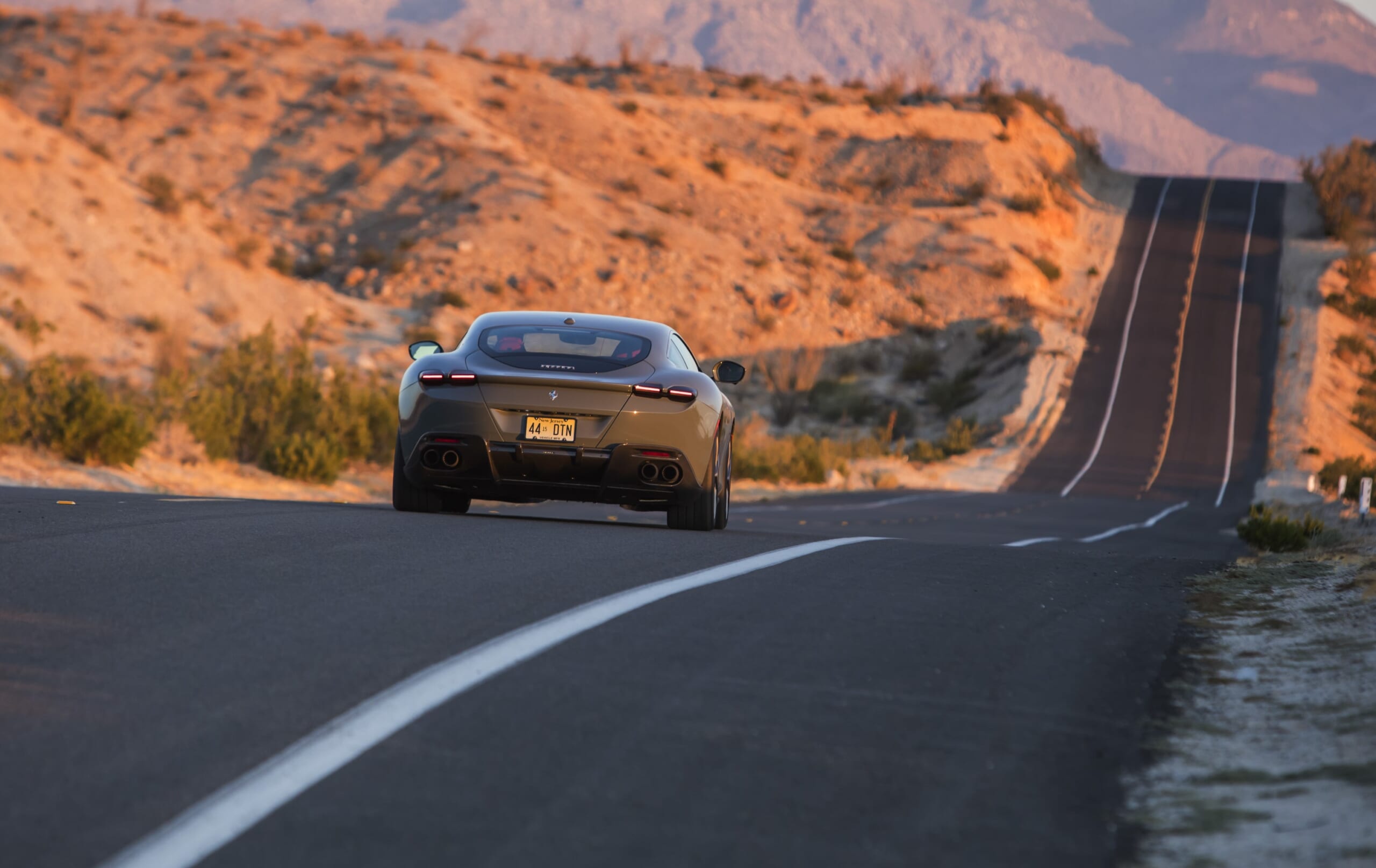
The Roma represents this tradition with understated self-assurance. It’s a Ferrari, its pedigree is the most successful F1 racing manufacturer in history and it doesn’t need to be brash. Yes, it certainly turns heads and receives attention, but it doesn’t seek attention in the way many supercars do. And isn’t that genius of the now iconic GTs of the 1960s?
To me, the design is just magnificent. And to physics, the performance is hugely impressive. But inside, the user interface is not up to par. The cockpit is, of course, exceptional, but the controls are counterintuitive and frustrating. I find this surprising because everything else about this Ferrari is supreme, and because a car this valuable (a nicely optioned Roma will realistically cost between $250,000-$275,000, although MSRP starts around $220,000) should have a user interface (UI) second to none.
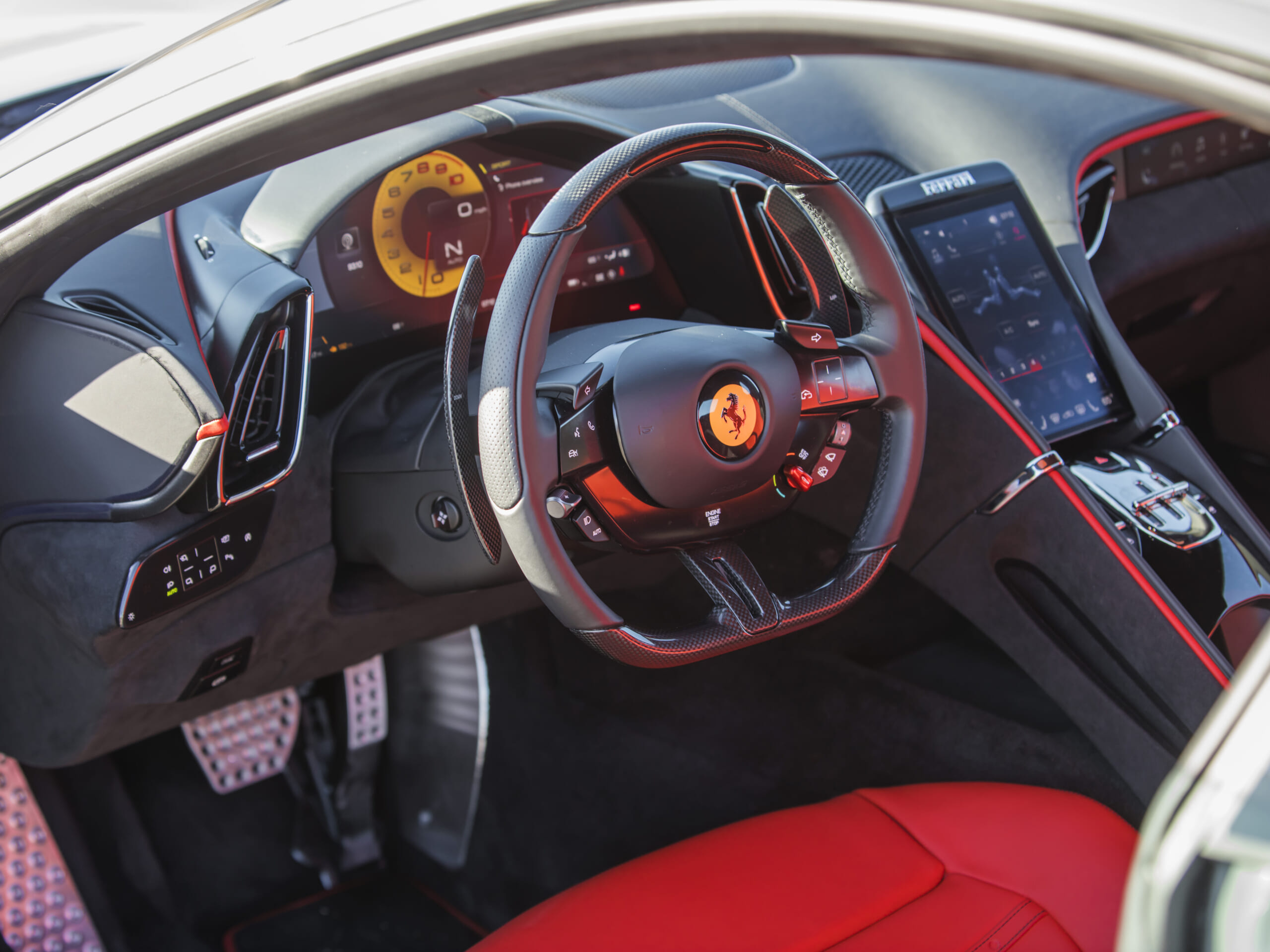
But this is a misdemeanor I’m willing to forgive. After all, this is the first generation Roma. When version 2.0 is released and the UI is (hopefully) designed in collaboration with a Silicon Valley firm, I will have been able to save up to place my deposit.
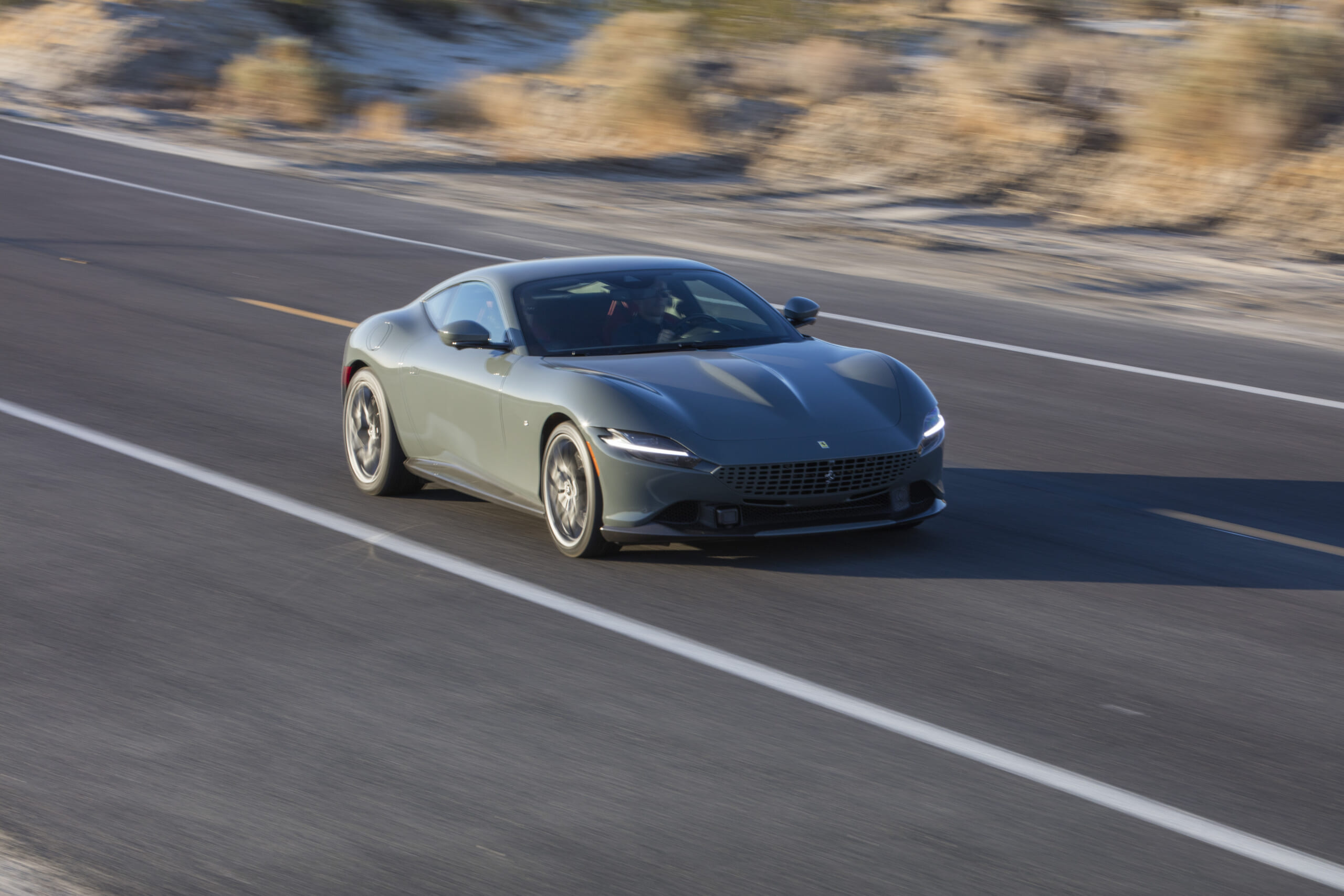
I’ve been incredibly fortunate to drive many extraordinary performance cars, but the Roma is possibly the first new supercar I ever thought, “I really need to find a way to buy one for myself.”
With this new GT, Ferrari has fulfilled its spiritual mandate for the time being. In decades from now the Roma will be referenced as design hallmark. Mark my words.
Jared Zaugg can be found at the intersection of lifestyle, motoring, travel and culture. Follow him on Instagram @jaredzaugg. All images courtesy of @Pawel_Litwinski_photography.
